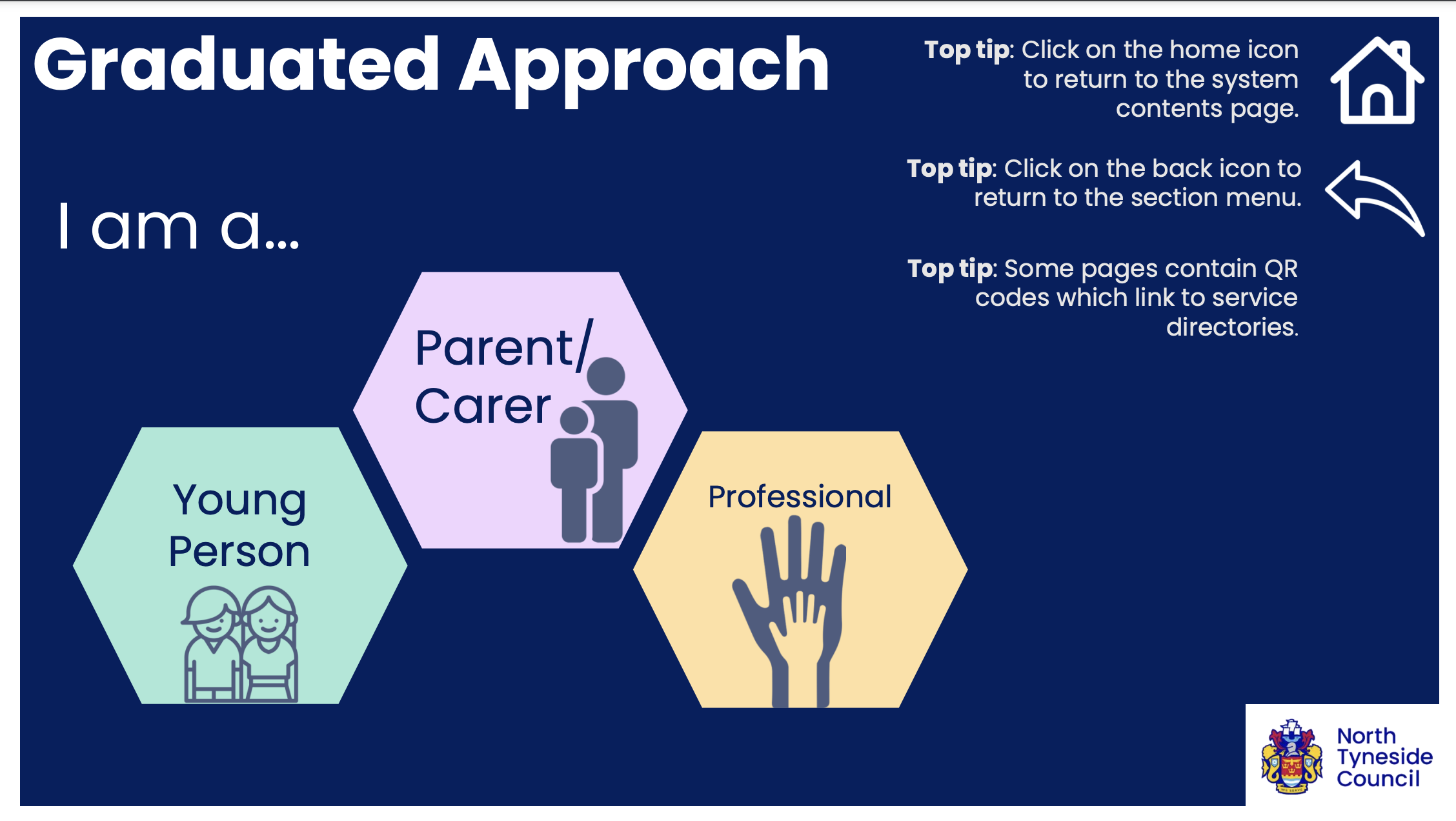SEND
Mrs Odessa Stephenson is our school's SENDCO. Please contact the school office on 0191 3000490 or office@monkhouseprimary.co.uk to get in touch with our SENDCO.

Our SEND Information report tellls you more abput how we support pupils with Special Educational Needs and Disabilities.

Parental Support
Special Educational Needs and Disability Information, Advice and Support Service (SENDIASS)
The Special Educational Needs and Disability Information, Advice and Support Service (SENDIASS) provide advice and information to Young People and Parents/Carers of children with Special Education Needs.
We provide impartial and factual support on all aspects of the SEN framework to help Young People and Parents/Carers play an active and informed role in their child's or their own education.
Although funded by the Local Authority we provide an Impartial Service to Young People, Parents/Carers that runs at arm’s length from the Authority to ensure Young People, Parents/Carers have confidence in us.
We can also provide Voluntary Independent Supporters if required that can assist in the planning and assessment process of the new Education, Health Care Plans.
If you would like more information about how SENDIASS can help you please contact us by:
Telephone: 0191 643 8317 and 643 8313
Email: SENDIASS@northtyneside.gov.uk
Managing School Holidays
Some children, and those who are autistic, can find changes in routine tricky, and with a school holiday approaching a change is coming! Some tips for helping children to manage holiday time include:
Set a routine
Consistent wake-up times and schedules during the school term provide comfort and familiarity for some children. While it’s impossible to maintain the exact routine during the school holidays, creating a regular schedule can help to ease anxiety Keep some elements of the school routine, such as mealtimes and bedtimes consistent. Structure the day into blocks—morning, afternoon, and evening, and talk in advance about the activities planned for each period.
Communicate with your child
Regularly talking with your child about changes in their routine is crucial. Discuss their concerns, what they are excited about, and how they want to spend their time during the holidays. Transparency about potentially challenging aspects, like long journeys, can help prepare them. Social stories can be an effective tool to introduce new or challenging scenarios in an understandable way. You can find out more about social stories here https://www.autism.org.uk/advice-and-guidance/topics/communication/communication-tools/social-stories-and-comic-strip-coversations and https://therapyworks.com/blog/language-development/home-tips/using-social-stories-improve-childs-development/
Visual timetables, making a ‘calendar for the week’, using photos and pictures to outline the day or week, can help your child know what to expect, reducing uncertainty and increasing predictability.
Plan activities out of the house in advance
New activities or visiting new places can be daunting for some children due to the many unknowns. Talking in advance about where you are going, how you will get there, what will happen and how long it will take can alleviate some of this stress.
Incorporate Downtime
Everyone needs time to recharge, and for autistic children, this downtime is essential to calm their minds, decompress, and regulate emotions, preventing burnout. Schedule stay-at-home days between busy ones to allow your child to recharge. Additionally, include daily downtime; for instance, if you have morning activities, plan a few hours at home in the afternoon. While engaging activities are beneficial, it’s equally important to ensure your child has time to process, decompress, and pursue their hobbies.
By following these tips, you can help make the school holidays more enjoyable and less stressful for your child and your entire family. However, keep in mind that every child is different, so not every tip will work for everyone.
Hive Connect: A Padlet of Shared Resources
We encourage any parents and carers, who may wish to access support for their child or family to take the time to explore the Hive Connect Padlet.

